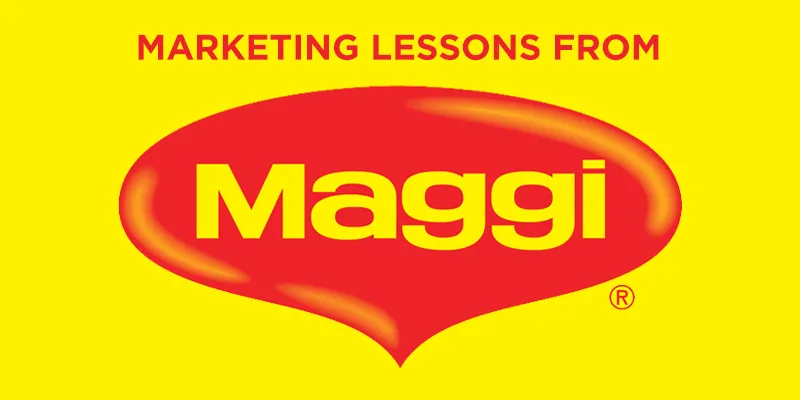There is so much marketing to learn from Maggi
Started salivating at the thought of your favourite two-minute noodles? That’s right, that’s how iconic Maggi noodles is — anyone can recognise its four-word tagline. We’ve grown up with Maggi being our ‘special meal’, dangled before us as an incentive for finishing our homework on time or cleaning our rooms. Maggi is something everybody knows how to make and swears by, but somehow when we think of home, we think of our mums making it for us as a reward, because there’s something special about it.

The real credit goes to Maggi’s campaign team for pushing all the right buttons and ensuring its presence in every household. Their strategy when it comes to television advertisements or even stills is so apt that when we see it, we can not only feel the hot masala-filled noodles detangling in our mouths, but we can smell it too.
Maggi may have been acquired by Nestle way back in 1947, but till this day holds centre stage independently and dominantly, unofficially of course. As is viral news, it suffered a massive setback when above-acceptable MSG levels were discovered in June 2015, after which further tests were performed in Kolkata. Following this, as per the Government’s decision, Maggi was removed from the counters of every store, supermarket, and ‘thela shop’ in the country, much to the heartbreak of millions. The internet exploded with Maggi-smuggling memes and people were forced to turn towards other, less popular noodles, only to have some of them taken away for testing as well.
Five dreary months later, the people of India woke up to the news that Maggi was going to make its comeback into polite society and everyone was ready to battle it out for the first few packets. Today Maggi has almost got back its pre-ban customer percentage and continues to be right at the top of the packeted food chain. How did it manage to come back from such bad press and renew its former reputation? Here are some of the tactics it used, and which can teach us a lot about marketing as well.
Using the nostalgia factor
Maggi has always made family-based advertisements to attract its customers. Most of the ads centre around mothers delighting their children with their favourite two-minute noodles with a storyline of how the child was having a bad day at school or the child growing up to use the mother’s special Maggi recipe to show her that she still needs her. Either which way, the narrative revolving around the mother-child duo (in most of the ads) strikes a chord with the users, who then subconsciously start noting the family value the product manages to sell. Quite naturally, the first ad after the Maggi relaunch was of a mother speaking nostalgically about her child’s tryst with his favourite noodles, thus further adding to the emotional value of the customers right there.
Keeping in touch through increased ad space
After the fiasco of the Maggi ban, its parent company Nestle decided to increase its spending on television commercials, leading to a growth of its ad volume to about 96 percent by September, 2015 — two months prior to the relaunch of the famous noodles, according to various data estimates. The first print advertisement that accompanied the announcement of the relaunch read — “Your Maggi is safe, has always been.”
The perfect medium for the launch
Along with increased spending on television ad space, Maggi was relentless in its promotions of the upcoming relaunch on social media. Using the full force of its high held presence on a platform like Facebook, which has about 261,433 likes on it (on last count), and an 87,700 following on Twitter.
Making it exclusive
Like with everything else, consumers thrive on the feeling of owning a product or service ‘exclusively’. Maggi played its cards smartly when it decided to take this into account by making a deal with Snapdeal, which became the only platform where Maggi packets were sold before its official comeback into the shelves of all stores. This raised its demand by a roof and customers were trying to outbid each other for the ownership of the packets, sometimes even paying more, before it went out of stock. The company thus set the stage for Maggi’s official comeback into the markets.
Today, we are back devouring our favourite pack of two-minute noodles without a single thought about the fact that it was banned for health reasons a little over a year ago. Not only did Maggi manage to save its reputation and get back a steady customer base, it taught us a thing or two about smart marketing!







